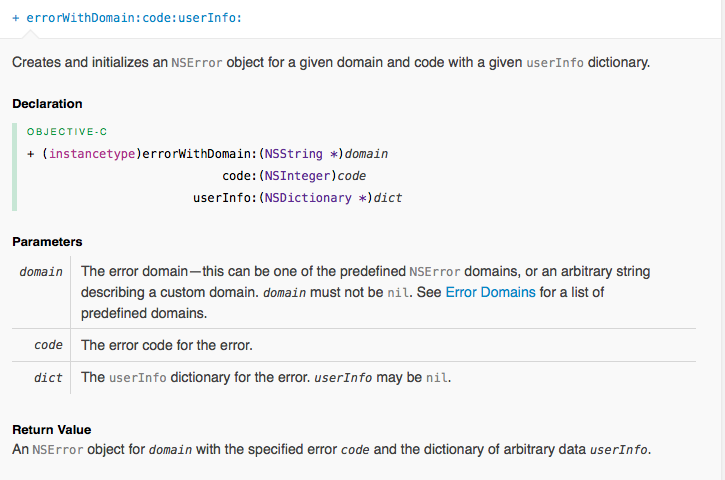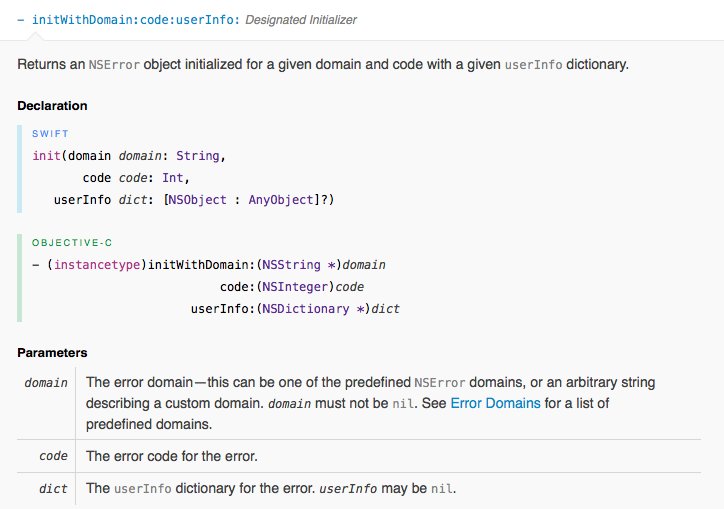I have the following code in Xcode :
NSError *error = [[NSError alloc] init];
NSData *urlData=[NSURLConnection sendSynchronousRequest:request returningResponse:&response error:&error];
And it throws following error in the logs
[NSError init] called; this results in an invalid NSError instance. It will raise an exception in a future release. Please call errorWithDomain:code:userInfo: or initWithDomain:code:userInfo:. This message shown only once.
Maybe, you will tell me that the answer is in the log, but I do not understand how to init NSError.



